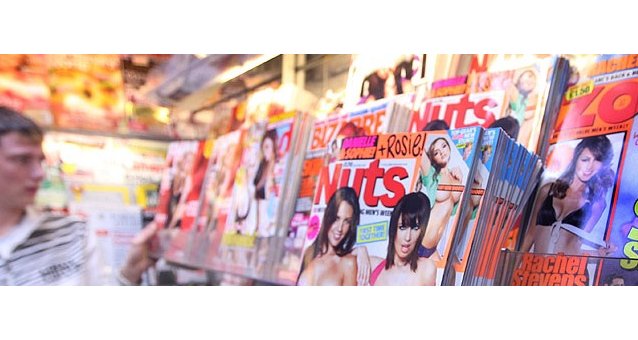HERstory: Launch of Ad Venture Student Competition

[Brussels, 10 November 2016] The European Women’s Lobby (EWL) is happy to be partnering with the European Association of Communications Agencies (EACA) and its European Institute for Commercial Communications Education (edcom) for the launch of a call for entries for the tenth annual advertising student competition, Ad Venture.
Students in the field of commercial communications are challenged to create a campaign which uses the Herstory of women’s rights as well as the positive past steps and persisting inequalities, as a basis for getting people informed and mobilised to engage with women’s organisations
The client for this year’s Ad Venture challenge is the European Women’s Lobby, which campaigns for women’s rights and gender equality across a wide range of issues. We are looking for a pan-European campaign to support our long term goal of achieving achieving gender equality and realising women’s human rights: "Women’s human rights are part of any modern society: they are new rights, still fragile, and needs to be promoted every day, based on the story of past actions".
The communication campaign will aim at making the target audience become aware of the progress made in recent years in advancing women’s rights, and motivating
people to engage with women’s organisations at national or European level. The campaign should make people understand that it’s only in recent history that women have slowly gained their basic human rights, that these are still fragile and need to be protected and strengthened. We also want them to be interested in learning more and engaging with women and women’s organisations to see women’s rights strongly established and respected throughout Europe.
The submitted entries will be assessed in three rounds by a broad base of judges, comprised of academics, advertising professionals and client representatives from across Europe. The three finalist teams will have the opportunity to present their campaign during the edcom Member’s Meeting on 19 May 2017 in Lisbon, Portugal. The winning team will be rewarded with travel, accommodation and a ticket to the Cannes Lions International Festival of Creativity in June 2017.
Students can register their teams until 15 December 2016 and have until 15 March 2017 to develop and submit their campaigns. Read here the brief about the competition.
About Ad Venture
Ad Venture is the first Pan-European competition which gives students the opportunity to experience what it is like to work in advertising by creating their own campaign in response to a brief from a real client. The student agencies work on an advertising campaign from October to March by incorporating everything they’ve learned in class and putting their skills to test. Click here for more information.
About EACA
EACA - the European Association of Communications Agencies - The European Association of Communications Agencies (EACA) represents more than 2500 communications agencies and agency associations from 30 European countries that directly employ more than 120 000 people. EACA members include advertising, media, digital, branding and PR agencies. They create and place adverts and develop brand-building campaigns. Click here for more information
edcom - the European Institute for Commercial Communications Education - was launched by EACA to promote excellence in commercial communications education and research and to encourage exchanges between the European commercial communications sector and academic partners. Click here for more information.
European Women’s Lobby
The European Women’s Lobby (EWL) brings together the women’s movement in Europe to influence the general public and European Institutions in support of women’s human rights and equality between women and men. They are the largest European umbrella network of women’s associations representing a total of more than 2000 organisations in all EU Member States and Candidate Countries, as well as 19 European-wide organisations representing the diversity of women and girls in Europe.
EWL envisions a society in which women’s contribution to all aspects of life is recognised, rewarded and celebrated - in leadership, in care and in production; all women have self-confidence, freedom of choice, and freedom from violence and exploitation; and no woman or girl is left behind.
Background
After centuries of inequalities between women and men, the 20th century has seen impressive change for women and girls in Europe. Over the centuries, many women and women’s movements led the way towards change and initiated the conversation about equality between women and men. The 20th century saw the first steps for the realisation of women’s human rights.
During the 20th century, women got the right to assembly, to vote, to be the owner of their own salaries, to open bank accounts, to control their fertility, to decide upon their relationships, to access justice in cases of male violence, to run for elections, etc.
More importantly, the reality of inequality between women and men has been recognised as a structural issue, that needs not only legislation change and specific measures, but also a real shift in mentalities in order to be overcome.
However, in 2016, gender equality is still not a reality. Women are still at risk of male violence, paid less, segregated in stereotypical less-valued jobs, not represented in politics and business, face sexual harassment, are impacted by stereotypes about women and girls in media…
In this context, it is important to raise awareness of the progress for women’s human rights over the last decades, in order to get the European population aware of history – or more correctly ‘HER’story. The role of women’s movements, of feminist activists and characters has been instrumental but is often unknown, not to say invisible or made invisible by the media and the society.
It is also crucial to highlight that the systemic change needed is still not realised, and that inequalities persist, that some women’s rights are not protected or ensured. Today in Europe, we still see attacks on women’s sexual rights or women’s maternity leave, denial of the pervasiveness of male violence and of stereotypes.




